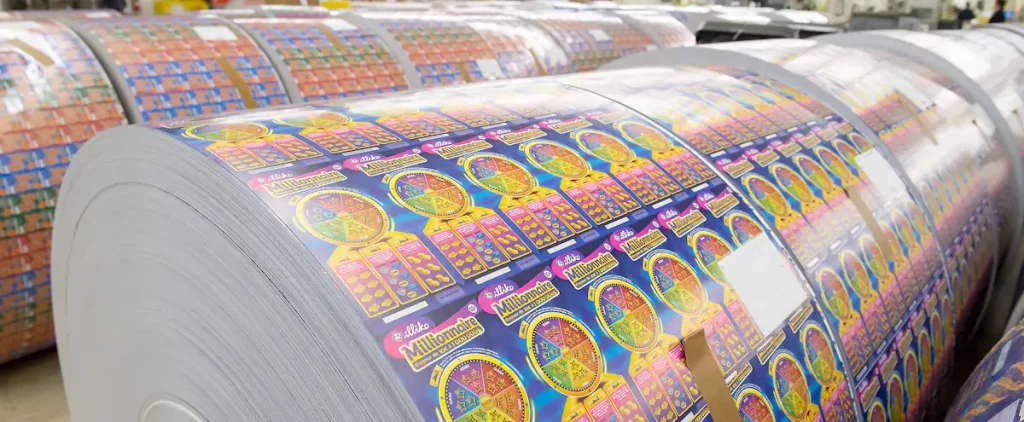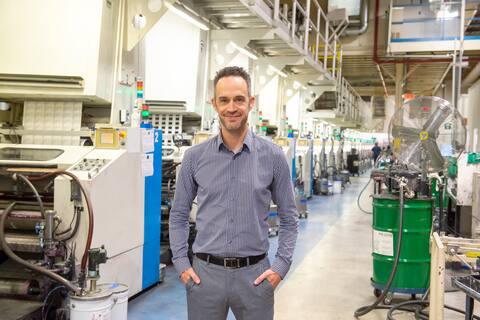
The pride of the 258 employees at the little-known factory in Montreal’s Hochelaga—Maisonneuve—has just been boosted as their employer Lotto-Québec renews its “main partner” title.
“We couldn’t be happier. We really did everything we could to achieve this and it was a success for us,” Marc-André Doyon, vice president of the country’s Scientific Games, said with relief during our visit.
The American company, established a few hundred meters east of the Olympic Stadium, was not used to attracting attention. However, the spotlight turned to Loto-Québec in 2014 after it decided, against all odds, to use its Manitoba competitor (the Pollard banknote) to generate more than 80% of its instant games.
This first $38 million contract at Pollard was later renewed twice (in 2019 and 2021), until the American team returned favors to the state-owned company. The confidential value agreement is valid for a period of five years.
Maximum security
The Montreal plant, one of five American-owned in the world, is arguably the safest in the province. Those who wish do not enter, and the few rare visitors who are authorized there must undergo security measures that recall border services at airports.
“When you think about it, our work is comparable to that of printing money,” said Mr. Doyan explained. Government agencies everywhere entrust us with the printing of their lottery tickets; Our job is to fulfill this mandate while respecting the highest possible standards. We must be infallible, there is no room for error in us. »
The 11,000 square foot factory never sleeps. Its presses are constantly “running”, 24 hours a day, 51 weeks a year, producing over 20 million scratch game tickets per day on behalf of some forty gaming companies around the world (Australia, the United States, France, Hungary, etc.) Until recently, 90% of its production Exported.
Back to Montreal
Things could change as Loto-Québec repatriates much of its production of scratch cards from Winnipeg to a plant on Boulevard de l’Assomption in Montreal. Eventually, at least 20% of its operations should be devoted to it.
The boss is more than discreet about the terms of the proposal, allowing her to recoup the deal she’s been avoiding. No guarantee of employment or investment was required, he vowed.
However, its last major investment ($20 million) for the purchase of a new 70-meter-long press — the true central nervous system of the establishment — dates back a dozen years.
Innovation and Ecology
The company says it invests hundreds of thousands annually in research and development, among other things, to create tickets made from recycled paper.
“Like us, Loto-Québec is recognized as a flagship that likes to be innovative by offering new products. It suits us perfectly, explained the Vice President.
“Because we can develop new ideas, he continues, if no customer dares to try it, it is useless. As they say, it takes two to dance. And Loto-Québec is definitely the dance partner of choice for us. »
Scientific games around the world
Employees: 3000
Head Office: Atlanta (Georgia)
Production Units: Five (Canada, Chile, China, United States, Great Britain)
Clients: 130 lottery companies from 50 countries.
Scope: 70% of the retail sales of lottery games in the world are generated by this company
Scientific Games in Montreal
Employees: 258
per hour: 24 hours a day
Annual Production: 8 billion notes (standard 2X4 inch units)






More Stories
Sportswear: Lolle acquires Louis Garneau Sports
REM is still innovative enough to foot the bill
A trip to the restaurant with no regrets for these customers